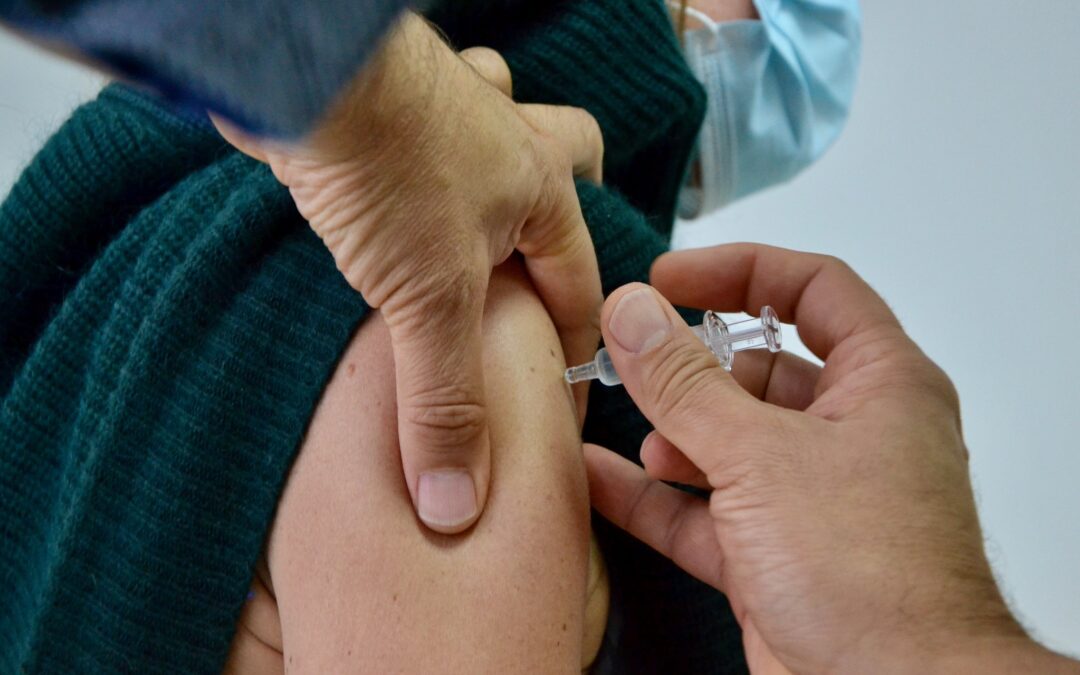The Polish government has announced that it intends to launch a compensation fund to support anyone experiencing negative side effects from taking the coronavirus vaccine. The plans are the latest move in a drive to assuage concerns about the safety of the vaccination.
“We want to prepare a fund that will encourage people to vaccinate against coronavirus and at the same time guarantee the support of the Polish state if there are any complications,” announced Prime Minister Mateusz Morawiecki at a press conference yesterday.
The rollout of the national vaccination programme began on Sunday in Poland as the first batches of Pfizer jabs arrived. The health minister, Adam Niedzielski, announced that by 6.30 p.m. on Tuesday more than 14,000 people in Poland had received their first dose of the vaccine.
However, there have been concerns at the level of scepticism over vaccination in the country, with numbers of voluntary registrations remaining low even among the medical professions. The government hopes that the compensation fund will soothe people’s fears.
“As defined in the national vaccination strategy, a special fund will be created to pay out any potential damages, provided that they will be necessary in the case of any negative side effects from the vaccine,” said government spokesman Piotr Müller, speaking on state television.
Müller pointed out that all negative side effects that are known so far are insubstantial, but it is still possible that they might be experienced. The special fund enabling compensation payments from the government aims to dispel any doubts that people might have about the safety of the jabs.
He added that the fund will be created by a law that is yet to be passed by the Polish parliament.
Morawiecki stressed that information from the countries that began vaccinating earlier gives cause for optimism. “The vaccine was really very well prepared,” the prime minister said at yesterday’s press conference.
The plans are the government’s latest attempt to encourage a high uptake for the new vaccine, as many still remain sceptical. A recent poll found that almost half of Poles are more afraid of possible side effects than they are of the virus itself.
Earlier this week, special privileges were announced for people who have been vaccinated. After receiving the second dose they will enjoy exemptions from lockdown rules, and will not be required to quarantine after coming into contact with someone who is infected, or after entering the country on mass transport.
The government has also launched an advertising campaign urging Poles to vaccinate out of concern and love for their relatives.
👪 A Ty dla kogo się zaszczepisz? #SzczepimySię
💉 Więcej informacji ➡️ https://t.co/qNHvFwAIe4 pic.twitter.com/JEkyEfPfad
— Kancelaria Premiera (@PremierRP) December 27, 2020
By the end of January, Poland expects to recieve 1.5 milion doses of the vaccine. Currently the vaccinations are being administered to “group zero”, which covers all medical personnel. Next in line are members of the uniformed services, teachers, residents of social welfare housing and nursing homes, and people aged over 60, starting from the oldest.
The government plans to start registration for everyone else willing to sign up for a voluntary jab on 15 January. The ultimate goal is to immunise 70-80% of the population.
Achieving widespread immunity will allow “a return to normality” and will help “protect jobs”, said Morawiecki when announcing the Polish vaccine plan.
Main image credit: Flickr/Département des Yvelines (under CC BY-ND 2.0)

Agnieszka Wądołowska is deputy editor-in-chief of Notes from Poland. She is a member of the European Press Prize’s preparatory committee. She was 2022 Fellow at the Entrepreneurial Journalism Creators Program at City University of New York. In 2024, she graduated from the Advanced Leadership Programme for Top Talents at the Center for Leadership. She has previously contributed to Gazeta Wyborcza, Wysokie Obcasy and Duży Format.




















